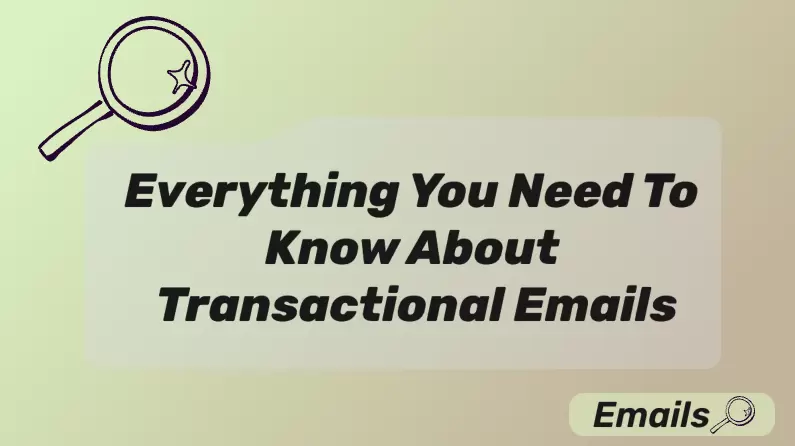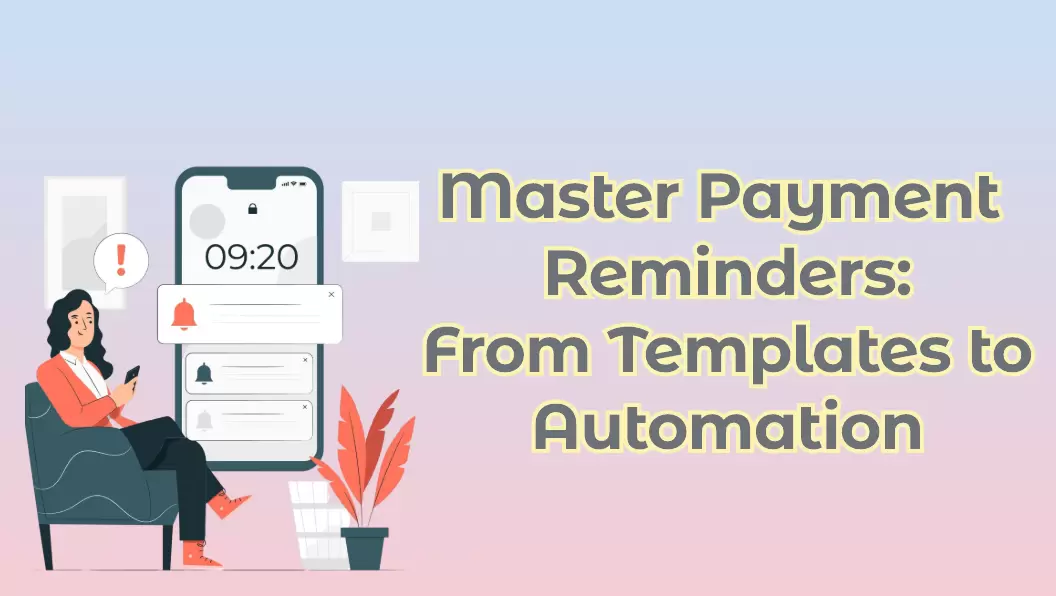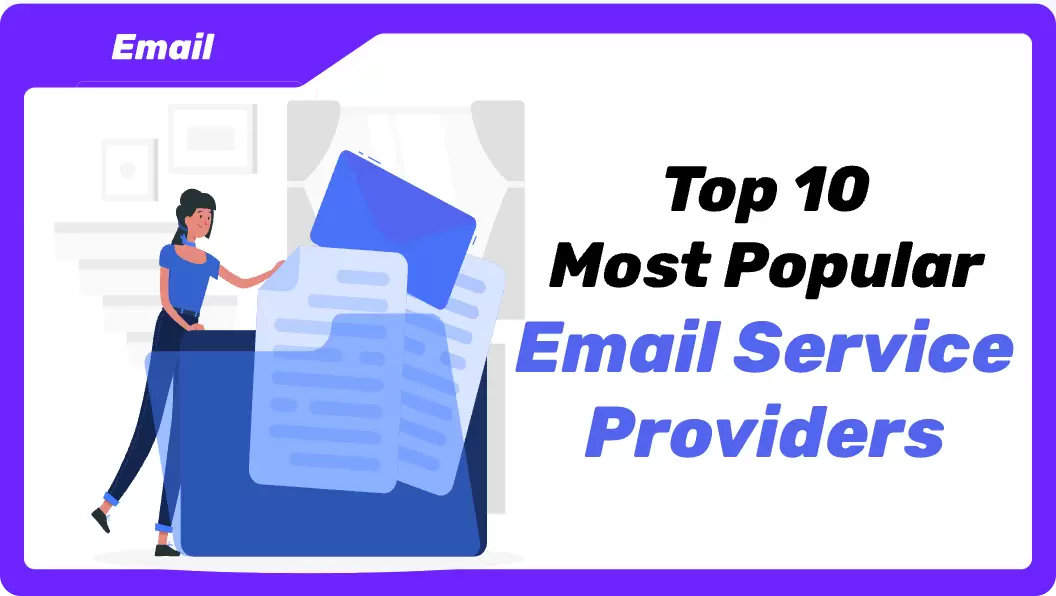Fact: The global marketing automation market was worth $6.65 billion in 2024, and it is expected to grow to $15.58 billion by 2030.
Such a massive market size means marketing automation has an impact on every type and size of organization all over the world.
So, if you are interested in learning about B2B marketing automation, its trends, and its core challenges, you are in the right place!
Part 1: Introduction to B2B Marketing Automation
Let's start by exploring the core concepts of B2B marketing automation.
What is B2B Marketing Automation?
B2B marketing automation is the process of using modern automation software to automate and streamline repetitive marketing workflows. As a result, it has a direct impact on the way companies engage with potential clients.

The overall IT infrastructure of B2B marketing automation platforms is designed to fulfill the complex requirements of lead generation in various sectors. Moreover, they provide automation features at a scale that is simply not supported by generic marketing solutions.
Therefore, B2B marketing automation is important for businesses in managing large-scale marketing campaigns and boosting their chances of getting more customers.
Benefits of B2B Marketing Automation
B2B marketing automation brings many different benefits to an organization across its sales, marketing, support, and overall profitability.
- Generate More Leads: With reliable B2B marketing automation software, you don't have to search the internet manually to get leads. Instead, you can generate better quality leads quickly and automatically.
- Improve Relationship with Customers: Marketing automation also involves responding to your customers' queries quickly in a personalized manner. This helps you build close relationships with the new customers and also improve with the existing ones.
- Build Brand Awareness: B2B marketing also helps you build brand awareness and attract more customers by letting them know about your services and products.
- Generate Traffic: B2B marketing automation is an efficient way of generating traffic for your business by linking specific products and services in your posts.
- Reduce Marketing Cost: Automating your marketing workflows also reduces the total marketing cost in the long run.
- Boosts Efficiency: B2B marketing automation speeds up marketing efforts and makes them more efficient through quick and reliable decision-making.
Key Differences Between B2B vs. B2C Marketing Automation
Since there are different types of marketing automation, it is important to clearly understand the differences between B2B vs B2C marketing automation to choose the right solution. The following table summarizes these differences:
| Feature | B2B Marketing Automation | B2C Marketing Automation |
|---|---|---|
| Target | Managers, department leaders, CEOs, and decision makers | Individual customers |
| Pain Points | Business complexities, operational efficiency, and budgeting issues | Specific issues and requirements of end-users |
| Key Benefits | Great efficiency, better ROI, scalability, and more leads at scale | Precise targeting via personalized marketing to fulfill individual's needs |
| Goal | Streamline business operations and improve profitability | Increase revenue by targeting individual customers |
| Duration of Sales Cycle | Typically long and complex to meet varying business requirements | Short and simple |
Part 2: Industry Trends & Core Challenges in B2B Marketing Automation
The B2B marketing industry is an ever-evolving space. Emerging tools and technologies have a direct impact on the way B2B marketing automation tools work and provide different featureThe following are some of the top industry trends in B2B marketing in 2025:
1. AI-Driven Automation
Generative AI is the leading trend of the tech industry in 2025. Numerous platforms like Gemini, Claude, and ChatGPT have gained popularity among marketers to automate marketing tasks and improve the results of their marketing efforts.
Whether it is harnessing marketing automation for B2B content marketing via ChatGPT or using AI image generators to distribute engaging images, generative AI is here to stay and lead the next phase of B2B marketing automation.

Source: https://act-on.com
2. Data Analysis and Management
Data collection, analysis, reporting, and management processes are an important part of any B2B marketing campaign. The modern B2B marketing automation platforms provide features to use AI for data analytics.
This streamlines the data collection process and helps more companies connect with the top-level executives and maximize the chances of closing a deal. It is vital to note that traditional data collection and marketing techniques are not sufficient to reach C-suite data, so reliable B2B marketing automation platforms must be used for this purpose.
3. Omnichannel Marketing
Nowadays, customers can interact with a brand through multiple channels, including paid ads, emails, social media, push notifications, and SMS. Such a large variety of marketing channels is a significant opportunity for marketers to expand their reach.
As a result, full-funnel B2B omnichannel marketing automation platforms have emerged to unify marketing campaigns and provide a satisfying experience to customers.
4. Personalization
Personalization is another key trend dominant in B2B marketing automation. People don't like receiving generic marketing emails now, as tons of brands are likely to send such messages. Hence, modern B2B marketing automation software offers the option of running marketing campaigns with precise targets and personalization at scale.
Core Challenges of B2B Marketing Automation
Several different challenges are involved in the implementation of B2B marketing automation. These challenges vary from basic IT support to more complex data-handling processes:
- Lack of Planning: Implementing marketing automation for B2B without proper planning and clear goals can result in significant losses for the business. It is important to have clear goals in mind and also analyze the current marketing infrastructure to ensure the right tool is selected.
- Lack of IT Support: You might be surprised to know that many organizations leave the process of B2B marketing automation up to the marketing and sales teams. This is the wrong approach because technical knowledge is necessary to set up such solutions, so the IT department should be a part of it as well.
- Data Decentralization: Most marketing automation tools are capable of sharing information between different channels, but they don't always integrate the data into a unified repository. So, the marketing team might have to use data integration or management tools, along with marketing automation, to avoid this challenge.
- Incorrect Customer Acquisition Model: The choice of your marketing automation tool is heavily dependent on what you want to achieve through it. If you want to target individual customers, you have to opt for B2C marketing, while B2B marketing is used to target high-level executives. Choosing the wrong type of automation software can cause significant challenges.
- Budget Constraints: Organizations can shy away from implementing B2B marketing automation solutions with the assumption that they are too expensive. In reality, many such platforms now offer usage-based pricing models to ensure you only have to pay for the features you are using.

Source: https://hingemarketing.com

Source:https://searchengineland.com

Source:https://firstpagesage.com
Part 3: Choosing the Right B2B Marketing Automation Solution
You can pick the right B2B marketing automation tool by considering the key functionalities and learning the exact process of how a tool can enhance B2B campaigns.
Key Features of B2B Marketing Automation Software
The following are the key features of B2B marketing automation software you should consider to ensure you are automating your B2B marketing with the perfect solution:
1. Personalized Content & Drip Campaigns
B2B marketing automation tools, especially for emails, can personalize the marketing content to demonstrate to the target audience that you care about their individual needs. Moreover, drip e-mail campaigns make sure your target is not bombarded with marketing messages at once. Instead, they get pre-written messages automatically at a suitable time to improve open and conversion rates.
2. CRM Integration
A marketing campaign does not end when you have made a sale. Instead, you should try to maintain healthy relationships with your clients, and it is possible with customer relationship management (CRM) automation tools like Salesforce, HubSpot, and Microsoft Dynamics 365.

Source:https://images.squarespace-cdn.com
3. AI and Predictive Analytics
You should choose a tool that has strong AI features and predictive analytics capabilities. Marketo AI is a powerful AI-powered marketing automation tool that offers features like lead management, consumer engagement marketing, real-time personalization, budget calendar, and campaign management.

Source:https://www.emailvendorselection.com
4. Multi-Channel Engagement
You should choose a B2B marketing automation platform that supports diverse marketing and lead generation efforts through multiple channels, including social media, email, push notifications, SMS, WhatsApp, and chatbot.
Having a comprehensive B2B marketing automation strategy will help you build brand awareness, reach more leads, get more paying customers, and ultimately, make more profits.
If you need any help in choosing the right B2B automation platforms, you can get in touch with us and read our comprehensive guide about the top 7 B2B automation platforms .
Role of EngageLab in B2B Marketing Campaigns
EngageLab is our top recommendation for B2B marketing automation because it supports engaging customers through multiple channels, including WhatsApp, push notifications, email, and SMS.

Moreover, EngageLab has evolved into an all-in-one marketing automation platform to facilitate businesses to enjoy accelerated growth. Precise targeting is at the very core of EngageLab to ensure businesses can reach their target audience via personalized user journeys. It is also powered by AI to provide quick and reliable insights, leading to higher efficiency and profitability.
Here's how you can use EngageLab to execute successful B2B marketing campaigns:
- Step1: Open EngageLab and sign in to your account. Click on the Get Started button located beside marketing automation.
- Step2: Under the marketing automation service, you have to follow a few steps to set up the campaign.
- Step3: Start by configuring the data sources to ensure your campaign is in sync with the latest relevant data obtained from mobile, web, API, and third-party services.
- Step4: The next step is to choose the channels through which you want to reach your target customers.
- Step5: Now that your channel and data sources are configured, you can design a user journey from scratch or choose one of the relevant templates from our large collection of pre-built user journey templates.
- Step6: You can easily preview a user journey before selecting it. For example, here's the workflow of the "re-engagement" user journey.
- Step7: Once the journey is properly configured with its steps, workflow, and triggers, you can click on the Publish. Once the journey is executed, you can start tracking its revenue and statistics from the statistics section.







Part 4: Key B2B Marketing Automation Strategies & Success Stories
Let's have a look at real-life success stories of businesses that have benefited from B2B marketing automation strategies in 3 core aspects:
1. Data-Driven Customer Acquisition
Data-driven marketing is an important part of marketing automation platforms to build a strong campaign. It also allows marketers to allocate the right budget toward different marketing activities.
Pelco is one of the leading global companies in security hardware and surveillance solutions. It replaced its marketing platform with Marketo to acquire global leads. As a result, the enterprise got a massive 99% boost in its six months of rollout.Some of the key features and strategies that Pelco used were advanced customer segmentation, unified analytics, and real-time campaign optimization. The good thing is you can get all of these features in EngageLab at a much lower budget than Marketo.
2. Automated Nurturing Process
DocuSign is another example of a successful business that increased its average deal size by 20% and decreased the sales cycle time by 10%. It got these amazing results by implementing Highspot to create a unified source for content and training.
You can also achieve similar results with EngageLab by personalizing your marketing content at scale through the same dashboard and building trigger-based workflows.

Source:https://www.highspot.com
3. ABM (Account-Based Marketing)
Snowflake, a cloud-based data storage company, partnered up with a 300% increase in engagement rates with the implementation of account-based marketing (ABM) strategies. It primarily partnered up with Terminus to achieve these results.

If you want to achieve similar results, you can do so by implementing ABM strategies using EngageLab. These strategies include running a well-planned multi-channel marketing campaign to target users from multiple sources. Moreover, analytics in EngageLab make it easy to track account engagement and ensure you are allocating money toward the right marketing channels.
Conclusion & What to Do Next?
This entire discussion about B2B marketing automation points to the fact that the moment to act and execute a successful automation strategy is right now!
With EngageLab, you can easily design, execute, and automate marketing campaigns across multiple channels and reach your target audience at the right time to turn them into loyal customers.
So, if you are interested in seeing a massive boost in your business's revenue via marketing automation, sign up today and create the perfect automated marketing campaign!









